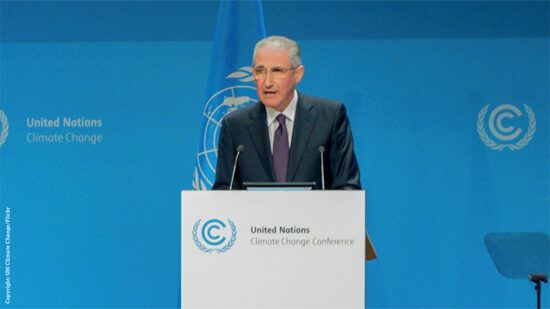Despite the US not taking a world lead in ESG regulation akin to Europe and some parts of Asia Pacific, it has been taking significant strides in 2022, with the recent finalising of the Department of Labor (DOL)’s ESG rule for workplace pension investments as a case in point.
The regulation from the DOL allows, but does not require, retirement plan advisers to consider climate change and ESG when selecting investments. It reverses rules from 2020 that required the fiduciaries to only consider factors that have a material effect on risk and return.
See also: – ESG Clarity‘s regulation roundup in Europe and Asia
Regulation rankings
ISS ESG – part of Institutional Shareholder Services – in its report The Depth & Breadth of Sustainable Finance Regulatory Initiatives: Global Developments in 2022, used a regulation breadth and depth index to take stock of such sustainable finance regulation across countries.
The US ranked behind 16 other countries with a score of 16 in 2022. This is up from a score of 12 last year when it ranked behind 13 other countries.
EU countries and the UK led in the index for both 2021 and 2022. France – scoring 96 and 108, respectively – ranked highest followed by Netherlands, Germany, Sweden, Austria and UK.
In 2021, Japan was the next country in the index with a score of 35. This year, despite climbing to a score of 40, it had been surpassed by Malaysia, Singapore and India. Australia and Thailand were some of the biggest climbers over the 12 months.
And, of course, 2022 is the year we have seen big moves forward with a genuinely global project for regulating sustainable finance – the International Sustainability Standards Board (ISSB), which is in the process of drafting international rules on general sustainability-related disclosure requirements and climate-related disclosure requirements ready for implementation in 2023.
US developments
Globally, regulatory efforts have been focusing in on managing climate-related financial risk and preventing greenwashing, according to ISS ESG. The group also said the agenda is now beginning to encompass nature-related risks and social issues.
Meanwhile, in the US the Securities and Exchange Commission (SEC) is working to tackle greenwashing through changes to disclosure requirements for investment advisers and funds, ISS ESG stated. The amendments cover ESG investment practices and name requirements for ESG funds. The proposed rules would better align US regulation with Europe’s Sustainable Finance Disclosure Regulation.
ISS ESG’s report summarizes the proposed disclosure requirements as:
- Funds focused on environmental factors generally would be required to disclose the greenhouse gas (GHG) emissions of their portfolio investments.
- Funds that claim to realize a particular ESG impact would be required to describe the intended impact and their progress toward it.
- Funds that rely on stewardship to implement their ESG strategy would be required to disclose information regarding their engagement with issuers, including meetings, and voting on ESG matters.
- The ‘Names Rule’ proposal would require funds whose names incorporate one or more ESG factors to invest at least 80% of their assets in investments suggested by that name.
In March this year, the regulator also proposed a rule which would mandate Scope 1 and Scope 2 emissions be disclosed by large companies and require “attestation” of those figures where a third party would need to verify them. The proposed rule would be phased in from 2024, starting with large companies and requiring lower levels of assurance on the data. They would need a higher level of assurance by 2027 and small companies would have an extended timeframe for compliance.
Pushback
Even with progress at the federal level, at the state level there has been ESG regulatory pushback. For example, under a state law passed in Texas last year, the state government was tasked with rooting out financial services companies or funds that specifically exclude fossil fuel holdings from their portfolios. Other Republican-led states have also been taking similar steps to prevent what is being called “boycotting” of the fossil fuel sector.
Just this week, however, a group of at least five major finance firms that had been targeted by Texas for boycotting have asked the office of state Comptroller Glenn Hegar to remove them from the divestment list published in August. According to Bloomberg, the group argued they should not have been included to begin with.
ISS ESG contrasted this localised pushback with other states such as New York and Maine that are either considering or have adopted legislation restricting government entities’ ability to do business with or invest in fossil fuel companies.








